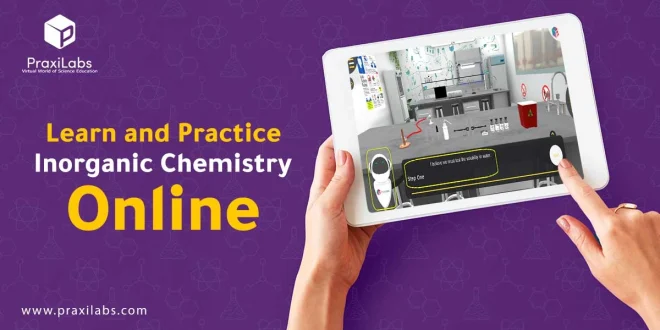Last Updated on July 22, 2025 by Muhamed Elmesery
Online learning is one of the most important features of our current era. Features such as flexibility and the ability to experiment at any time and any number of times make learning inorganic chemistry online a great choice for practical college students!
In this blog post, we will delve into the world of learning inorganic chemistry online, What can you do in the inorganic chemistry online lab? The learning outcomes, the benefits, how to register for an online chemistry labs, What is the main inorganic chemistry listings at PraxiLabs?, and more!
Table of Contents
What is an inorganic chemistry online lab?
An Inorganic chemistry online lab is a 3D virtual lab that simulates the real chemistry laboratory in a virtual environment and enables students to perform their experiments online at any time without any limitations, and as many times as needed.
Inorganic chemistry online simulations cover variety of topics such as:
- Titration.
- Chemical bonds.
- Chemical bond formation.
- Qualitative chemical analysis.
- Electronic properties.
- Transition elements.
- Redox reactions.
- Valence bonds.
What can you do in the inorganic chemistry online lab?
In the online inorganic chemistry lab, you can perform your inorganic chemistry experiments virtually in a safe environment, anytime, and anywhere!
Just imagine you want to perform an experiment to test for the bicarbonate radical in inorganic salts by using virtual lab:
- When you select the experiment you want to conduct, the lab loading and preparation process will begin.

- Once you load the experiment and enter the virtual lab, a step-by-step tutorial that points out features inside the lab will appear to help you understand how to use the virtual lab and conduct the experiment easily and quickly.
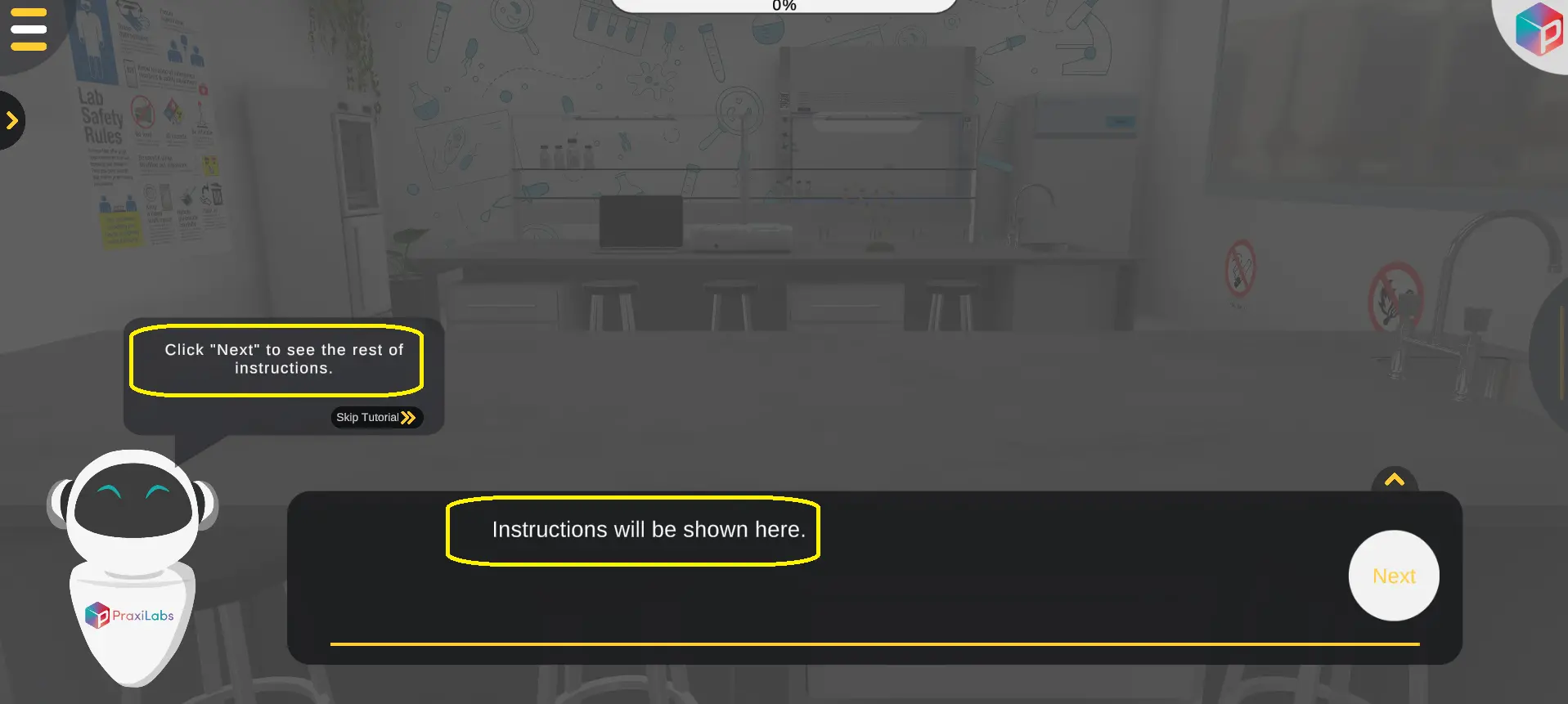
- Then an explanatory message appears to clarify the objective of the experiment.
- In this part, the experiment tools you will use will appear.
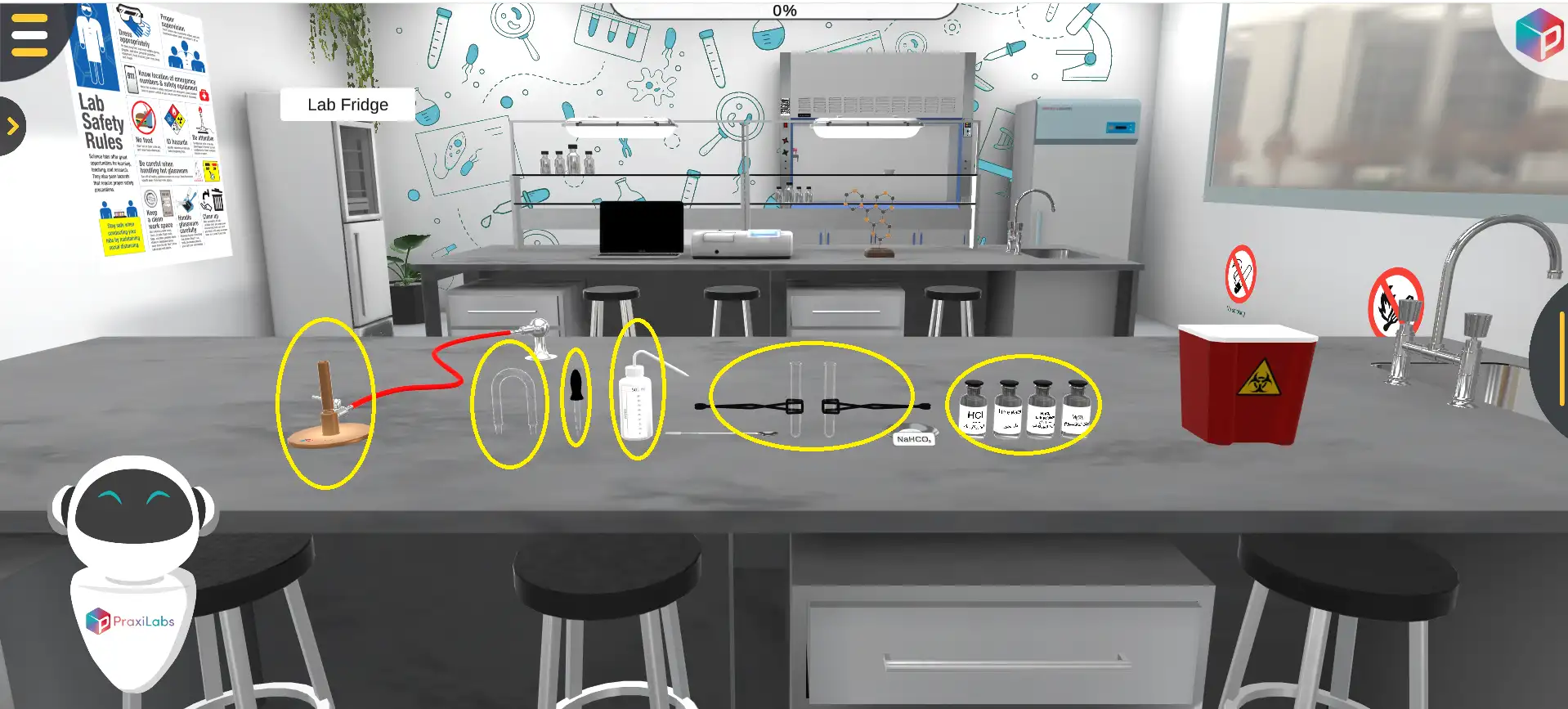
- You can interact with the tools inside the lab and move them from one place to another by holding the left click key.
- Once you start the experiment and click on this character, a series of messages will help you remember the steps until you finish doing them correctly. When you click on it again, the messages will disappear.
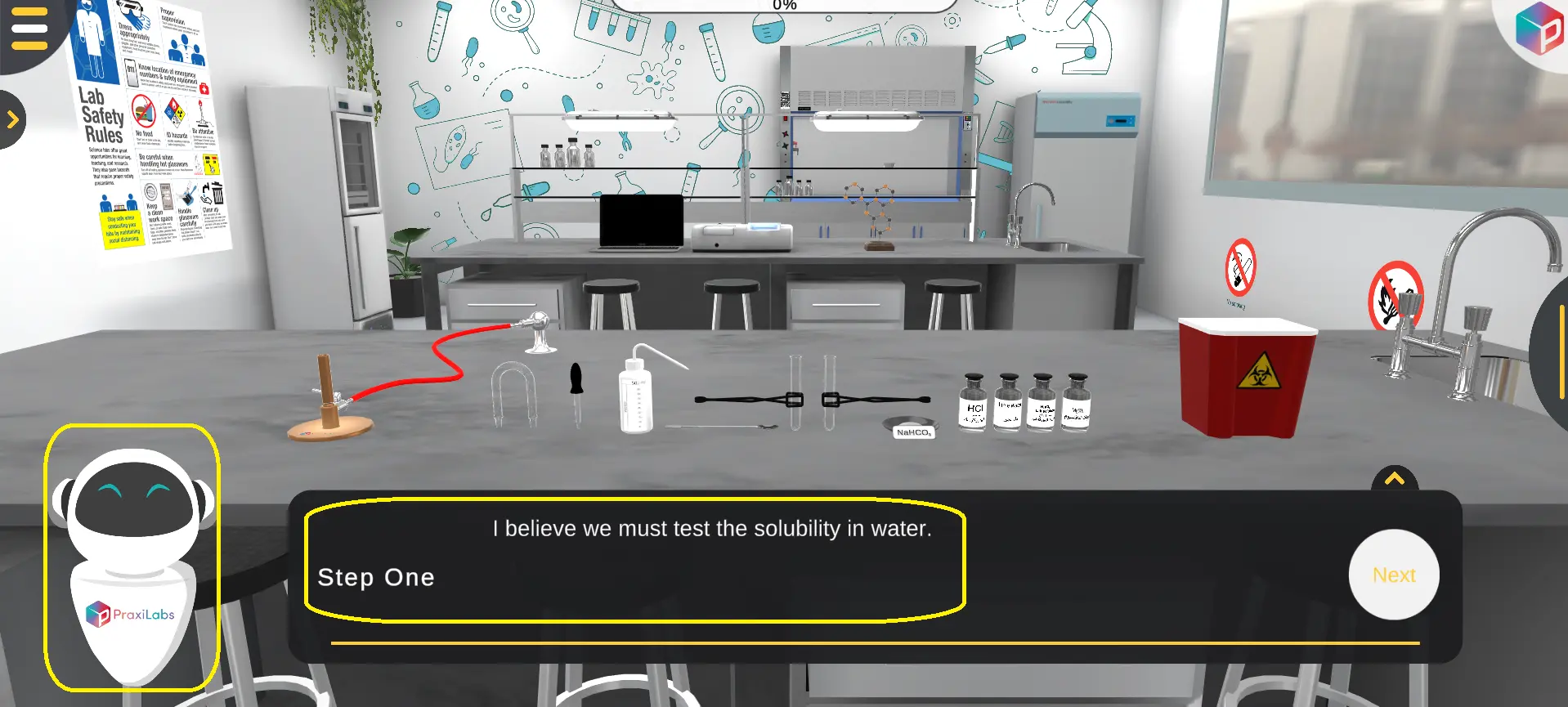
- When you click on the menu button in the top left, it will take you to the part where you can learn about the steps of the experiment before conducting it. This is done through:
- An explanatory video.
- Files to explain the experiment (Lab manual).
- Supplementary information.
- exercises to test yourself after the experiment.
- When you finish the experiment, a message will appear informing you that you have completed the experiment.
Try PraxiLabs and Experience a Virtual World of Science Education
Pick the Best Virtual Plan For You
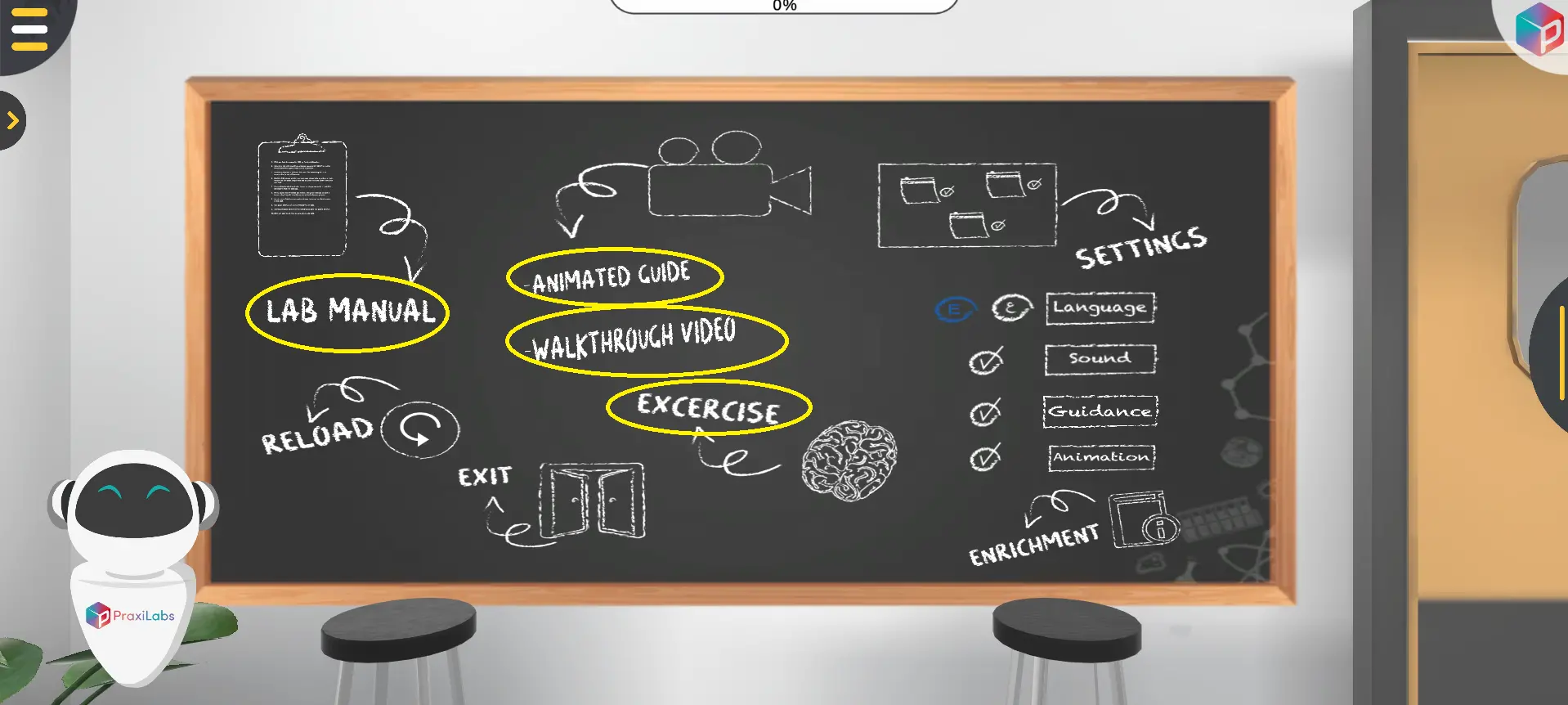
Inorganic chemistry online lab learning outcomes
According to the study “The Effectiveness of using virtual laboratory workshops in online education of students studying the discipline “Inorganic Chemistry”” which proved that the use of computer modeling and the tools of a virtual lab when studying chemistry disciplines (inorganic chemistry):
- Increases the educational achievements of the students, regardless of the initial level of knowledge.
- A prerequisite for the effective acquisition of skills by students is the systematic use of virtual laboratory tools.
- Provides independent training for students, and increases motivation to master new material.
- Students focus on the experimental process, not on equipment and tools, as happens in a real laboratory.
Benefits of studying inorganic chemistry online
Studying at inorganic chemistry online class offers several benefits, including flexibility, cost-effectiveness, and access to a wider range of resources and learning methods.
It revolutionizes the way of education is delivered, as it resolves the problem of performing practical experiments remotely and offers new features to increase students performance:
- Flexibility and Convenience.
- Accessibility.
- Cost-Effectiveness.
- Variety of Learning Materials.
- Interactive Learning.
- Personalized Learning.
- Enhanced Engagement.
- Development of Digital Literacy.
- Preparation for Future Careers.
How to register for an online chemistry labs?
To register for online chemistry labs such as PraxiLabs and start using it on your Laptop, Desktop Computer, you will need the following:
- A Laptop/Computer.
- An Operating System.
- An Internet.
- A Browser.
When you enter the PraxiLabs website, you will see the home page where you can create a free account, log in, visit the blog, view the experiments list, etc.
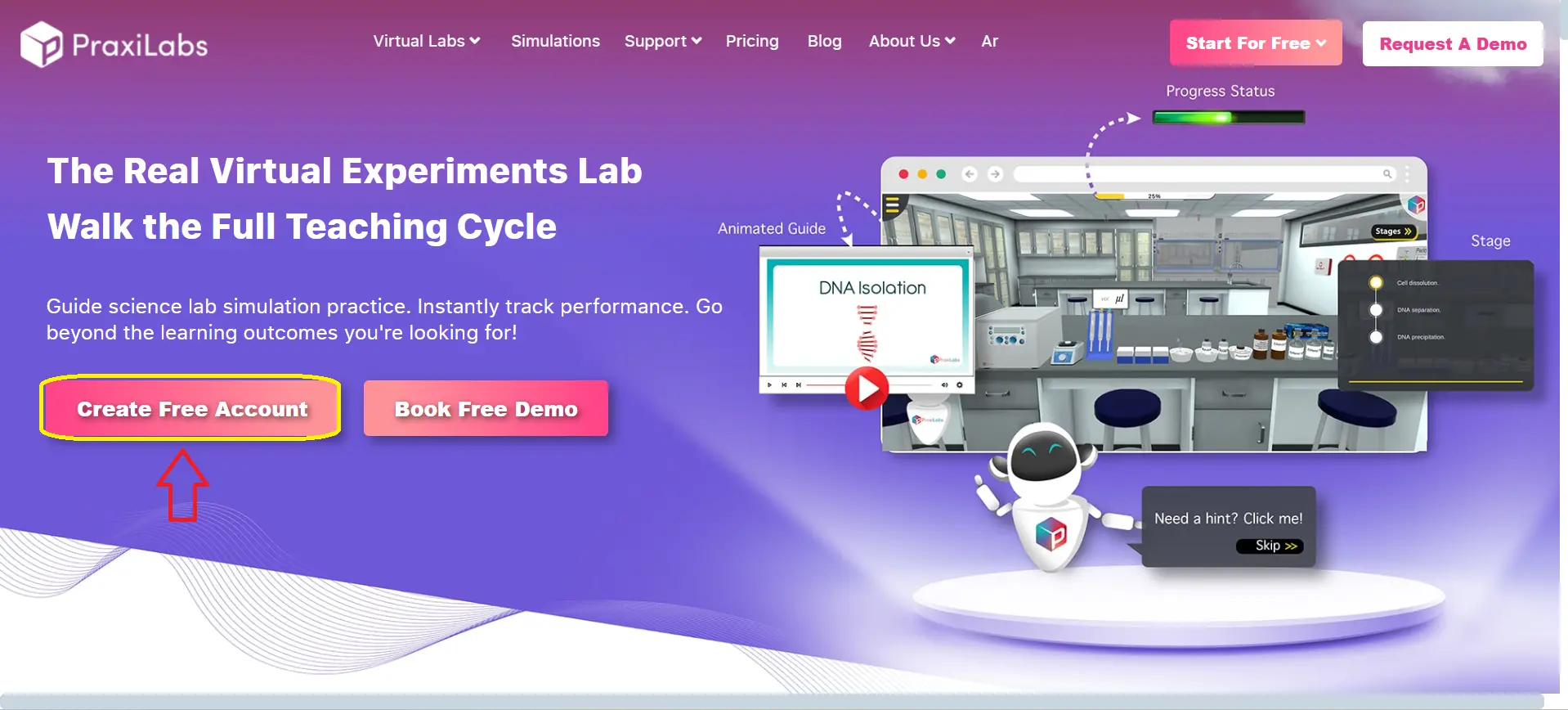
Once you create your account, you can start choosing and conducting your experiments.
PraxiLabs, the 3D virtual lab solution, provides students with access to realistic biology, chemistry, and physics labs and enriches their understanding with a variety of informational and educational content
What is the main inorganic chemistry listings at PraxiLabs?
PraxiLabs provides a wide range of 3D interactive simulations that cover critical topics in inorganic chemistry such as qualitative Analysis (Salt Analysis).
Let’s explore the main inorganic chemistry virtual labs at PraxiLabs:
| Category | Tests | Main Principle |
| Tests for Acid Radicals (Anions) |
|
|
| Tests for Basic Radicals (Cations) |
|
|
| Special Method | Flame Test (for cations such as Na⁺, K⁺, Ca²⁺, Ba²⁺, Cu²⁺, etc.) |
|
Frequently Asked Questions
Can I take inorganic chemistry online?
Yes, it is possible to take chemistry courses online and learn inorganic chemistry online. Many universities and online learning platforms offer online options for this subject, you can depend on inorganic virtual chemistry lab simulation to perform your experiments.
What online websites can I take inorganic and organic with lab chemistry?
PraxiLabs provides a wide range of 3d science experiments including basic and advanced inorganic and organic chemistry experiments.
Elevate your students’ Learning Retention and Engagement with PraxiLabs’ Chemistry virtual labs!
 PraxiLabs A virtual world of science
PraxiLabs A virtual world of science

